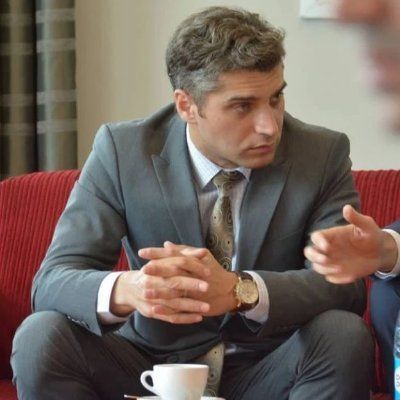Global Powers around BRICS: Azerbaijan's role in fostering solidarity [ANALYSIS]
![Global Powers around BRICS: Azerbaijan's role in fostering solidarity [ANALYSIS]](https://www.azernews.az/media/2024/10/24/17297582042204813545_1200x630.jpg)
The BRICS summit, started on October 22, brought together the heads of state in Kazan, Russia. On the first day, the leaders of the BRICS member states and leaders of other countries, including Azerbaijan, who came at the invitation of Russian President Vladimir Putin, had one-on-one meetings in Kazan to discuss prospects of cooperation within this year's BRICS Plus meeting.
What distinguishes the BRICS summit, which is held every year on the initiative of its member countries, from other meetings is that it takes on a more global character. It is no coincidence that UN Secretary-General Antonio Guterres also visited the three-day summit held this year in Russia’s Kazan. Although this did not satisfy Western circles, the Secretary General’s participation could emphasize the extreme importance of this annual summit. As an international organization, the UN is one of the leading organizations in developing international relations, conflict resolution, and global initiatives. The fact that the UN respects BRICS and is represented at the leadership level in the 3-day summit is a clear example of the professionalism of such an organization.
Aspects that underline the strength of BRICS
The group, which has been operating since 2006, held its first summit as BRICS in 2009, and since that time, the global five have made efforts to form a mechanism for resistance and joint struggle against the political and economic influences of other global powers leading our world to polarisation.
BRICS, which is increasing its influence year by year, is now considered important by countries such as Turkiye, Azerbaijan, UAE, and Egypt in addition to China, and it is no coincidence that the leaders of the mentioned countries were in Kazan to participate in the summit.
Yes, BRICS is essentially one of the main power centers of the multipolar world. At the same time, the Kazan Declaration adopted on the 2nd day of the summit emphasized the importance of BRICS’ expansion as it will further promote partnership with developing and emerging market countries as well as the spirit of solidarity and genuine international cooperation for the common good. In the declaration, the countries highlight their commitments to advance the institutional development of BRICS.
BRICS is liberal and does not discriminate against other countries, and its approach makes the association stronger than the G7 intergovernmental political forum. Russia, which was once a member of the G8, was pushed out of the organization in 2014. This shows that Western organizations only attract those who agree with their principles, and those who disagree are unequivocally excluded. The goal of BRICS is to eliminate such stereotypes and undermine the world monopoly. Because some global powers are either selective towards the countries they do not like, that is, to put it more clearly, they blacklist them once they refuse to follow their dictates.
Why does Azerbaijan attach significance to BRICS?
Although Azerbaijan is an economically and politically independent and stable country, in many cases it is exposed to the negative influence of global powers. Especially after 2020, Azerbaijan is often criticized by Western organizations for its initiatives to put an end to the Garabagh conflict finally, becoming the target of unfounded and biased statements by some political circles, and the selective approach against it that has already become a trend. In the last year, the European Parliament, PACE, political circles of the European Union and a number of political organizations collaborating with the Armenian Lobby have published dozens of statements against Azerbaijan. These statements form the basis of smear campaigns designed to damage the image of Azerbaijan, despite the EU’s recognition of Azerbaijan as an honest and reliable partner both diplomatically and economically.
In a few weeks, Azerbaijan will host COP29, one of the UNCCC's global climate events, but instead of supporting this event, some political circles are calling for a boycott campaign against Azerbaijan. Shamefully, these international organizations, as well as politicians in the European Parliament, are proud to be participants in such biased campaigns. In such a case, where should countries like Azerbaijan, which are subjected to injustice, turn to? This question also worries other heads of state participating in the BRICS summit held on October 22-24.
This is still the political side of the problem. Let us imagine what is happening in the economic sphere now...
---
Elnur Enveroglu is AzerNews’ deputy editor-in-chief, follow him on @ElnurMammadli1
Follow us on Twitter @AzerNewsAz
Here we are to serve you with news right now. It does not cost much, but worth your attention.
Choose to support open, independent, quality journalism and subscribe on a monthly basis.
By subscribing to our online newspaper, you can have full digital access to all news, analysis, and much more.
You can also follow AzerNEWS on Twitter @AzerNewsAz or Facebook @AzerNewsNewspaper
Thank you!

